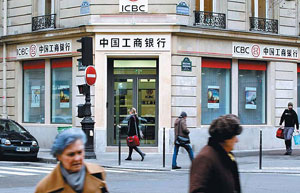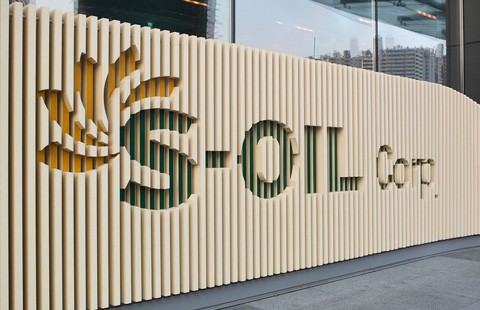Alipay, ABC to open Luxembourg branches
(Xinhua) Updated: 2014-07-04 16:56The bank also predicted that with clearing facilities now available in the European time-zone, more trade between China and the EU will be settled in yuan and account for roughly 6 percent of China's total trade with the rest of the world in the next three years, compared with less than 1.7 percent in 2013.
While Europe has been eager to facilitate the yuan's use in the region, it is also seeking channels to invest its yuan holdings. One option is to channel the offshore yuan back to China and invest in the country's capital market.
However, with China's control over its capital account, foreigners can only invest through a scheme Chinese authorities created in 2011 to allow foreign investors limited exposure to the country's stock market, called yuan Qualified Institutional Investors (RQFII).
Mark Boleat, Chairman of the Policy and Resources Committee at the City of London Corporation, said during his visit to Shanghai last week that UK investors want deeper involvement in China's capital market through increased RQFII quota.
"As the Chinese economy becomes even more integrated with the world, institutional investors would want to hold investment in yuan," Boleat said.
So far the United Kingdom has been allowed to invest up to 80 billion yuan in China's capital market. The quota was granted in October and the first to have been obtained by overseas institutional investors other than those in Hong Kong.
In addition to the United Kingdom, China also granted another 50 billion yuan quota to Singapore in October, followed by 80 billion to France in March.
 |
 |
| France leads eurozone in offshore RMB payments | Clearing facility to support London's renminbi business |
- Alipay aims to build ecosystem to improve payment security
- Overseas services boosted by Alipay
- Alipay gets regulator nod for Tianhong deal
- Alipay forms alliance with Japanese firm
- China signs RMB business MoUs with Luxembourg, France
- Bank of China to list yuan bond on Luxembourg Stock Exchange
- Offshore RMB bond issues in first half hit 277b yuan: Singaporean banker
- Alipay, ABC to open Luxembourg branches
- S.Korean firms boom in China
- Ganzhou expects to quadruple GDP by 2020
- Alibaba's Jack Ma buys stake in dairy giant
- Analysts say Sino-Swiss free trade deal to foster trade ties
- Yuan deposits makes up 20% of foreign currency deposits in S.Korea
- Asia, not US, driving global growth
- Harvest brings little joy to melon farmers

















